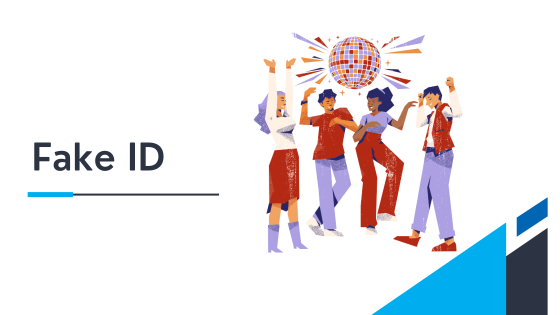Fake identification cards (IDs) have been an ongoing issue for both individuals and institutions trying to ensure safety and compliance. Understanding the underlying psychology and motivations behind individuals resorting to such actions can provide valuable insights.
Thrill-Seeking and Risk-Taking Behaviors
Adolescents and young adults often exhibit a penchant for thrill-seeking and risk-taking behaviors. The desire to experiment with age-restricted activities can stem from a combination of impulsivity, sensation-seeking, and peer pressure. It is during these formative years in life that risk assessment abilities might not be fully developed, and defiance of established rules can be seen as enticing.
Social Validation and Peer Pressure
The desire for acceptance and validation from peers can be a significant driving factor for using counterfeit IDs. Under the influence of peer pressure, especially within limited social circles, using a fake ID might seem more pardonable and even a rite of passage. The need to establish a social identity and fit in can override the perceived risks and consequences of using a fake ID.
Perceived Injustice and Rebellion
Some individuals might feel unfairly constrained by age-restrictions or identification requirements and choose to obtain fake IDs to defy such rules. A perceived sense of injustice can lead to rebellious acts, motivating them to assert their independence using illicit means.
Escapism and Altering Personal Identity
In some cases, the appeal of using a counterfeit ID stems from the desire to escape one’s circumstances, create a new identity, or exaggerate personal attributes. An individual might use a fake ID to shed feelings of inadequacy by assuming a more confident or successful persona.

Lack of Consequence Awareness
A significant factor at play can also be a lack of awareness of the potential consequences tied to using fake IDs. Misinformation, minimal exposure to real-life repercussions, or glamorization of ID forgery in popular media could contribute to an individual’s choices, blurring the lines between reality and fiction.
Financial Gain and Crime Facilitation
Counterfeit ID usage can also be tied to financial gain and criminal activities. Criminal enterprises often rely on forged or fake IDs to evade law enforcement or conduct an illicit transaction. In these instances, the psychology behind using fake IDs is rooted in criminal intent.
There are many fake ID site reviews that can help you determine which sites are legitimate and which are scams.
Conclusion
Understanding the psychology and motivations behind using fake IDs can be crucial for policymakers, educators, and law enforcement to devise effective prevention strategies. By addressing the underlying reasons, such as thrill-seeking, rebellion, or the desire for social validation, tailored interventions could be designed to educate and dissuade individuals from resorting to counterfeit IDs.
Ultimately, it is essential to focus on prevention, awareness, and educating individuals about the potential severe consequences tied to fake ID usage. A comprehensive approach targeting the psychological factors at play will undoubtedly prove more successful in combating the pervasive issue of counterfeit identification.
